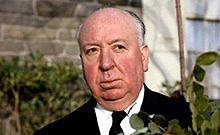![]()
![]() You are never too old to set another goal or to dream a new dream.
You are never too old to set another goal or to dream a new dream.
—C. S. Lewis, author, theologian.

Alfred Hitchcock
“I’m too old to start a business,” said my forty-four-year-old friend when I encouraged her to become an entrepreneur. I shook my head as she rambled on about how she has too many responsibilities and how she’s not as creative as she used to be. Her excuses were ridiculous, but all too common for people her age.
As the media focus on young CEOs like Facebook’s Mark Zuckerberg and Instagram’s Kevin Systrom, it is easy to assume that most companies these days are started by teenagers and people in their twenties. Consequently, many older people buy into this media hype and think that starting a company is for young people, accepting that their chances of success are limited by their age. This assumption and the media hype couldn’t be further from the truth.
First, the media hype is heavily focused on the technology sector, which tends to glorify young superstars. When it comes to what is most appealing to the media, the new social media company always overshadows the new bakery on Main Street. However, most new businesses in the United States aren’t tech-related and sexy. They will be primarily sole proprietorships and small businesses with fewer than five employees. Most of their owners will be old enough to a tech guru’s mother or father.
Second, older people are starting more businesses than people in their teens and twenties. According to a Kauffman Foundation study, Americans between the ages of thirty-five and forty-four represented the largest increase in entrepreneurial activity from 2008 to 2009. Americans between ages fifty-five and sixty-four constituted the second-largest jump. The reasons range from middle-aged adults wanting to supplement their income to retired individuals wanting to continue working. Regardless of the reasons, older Americans are catching the entrepreneurial bug, which is good news for everyone. Unfortunately, we don’t hear enough about these exciting data.
Interestingly, research shows that older people are more likely to be successful when they start businesses. Older entrepreneurs have the experience needed to better navigate the rough waters of entrepreneurship. During years of work, they have developed a treasure chest of skills that makes them highly valuable. For instance, if they go into business in the same industry in which they worked for many years, their understanding of the business is a tremendous competitive advantage.
In other good news, University of Chicago economist David Galenson contends that “experimental innovators” require time to reach their peak. His research, which is largely credited with cracking the code of the creative mind, concludes that experimental innovators do their best work in life at an older age. They accomplish their genius through trial and error. Examples of these innovators are Steve Jobs, Mark Twain, and Alfred Hitchcock.
Older people may give a bunch of reasons for saying they are too old to start a business, but they are just excuses, many of which are defended with misinformation. Now we have plenty of data and reasons to support why being in your later years is an asset, not a liability, when starting a business. If you are in your early thirties, forties, or older, it is not too late to start a business. Don’t let your age deter you from pursuing your dream. Ultimately, a solid business idea paired with flawless execution, not a fresh face, is what leads to success in business.

